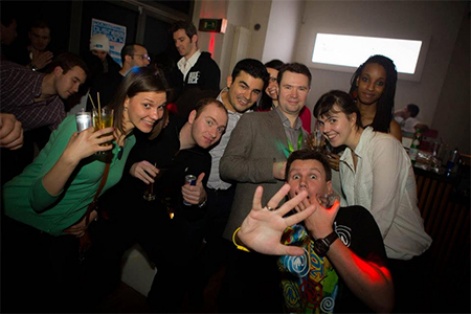Barely a day goes by without news about impressive download figures, monetisation breakthroughs, or how many millions of handsets are activated every single day.
But in such an overwhelmingly crowded industry, such stellar successes can often come across like flagging up lottery winners as proof that the economy's on the mend.
The quiet reality for the vast majority is often swept under the rug as the industry looks for the next fragment of good news.
It's not a bad strategy. After all, who doesn't enjoy witnessing the upward momentum of smart gaming? This positivity has helped energise vast sections of game development into the kind of creative risk-taking that seemed to have gone forever.
Idea overload
Ideas are flowing at a rate that's almost impossible to keep up with, and trying to filter out the best titles among the hundreds released every week is a task and a half for even the most dedicated gamer.
But the opportunities for overnight global success mask the rather less savoury reality for much of the development community.
At the recent Pocket Gamer party in Hamburg for Casual Connect, the contrast between those who've made it, and those who are desperate to break in couldn't have been more apparent.
On one end of the scale, you had the Supercell starlets toasting yet more astonishing EA-beating success. Since I last bumped into them in Cologne in August, the Finnish studio has expanded to over 70 staff on the back of Hay Day and Clash Of Clans. Who knows how far the company can go?
At times, the event felt like a who's-who of development talent, but meeting the less familiar names told a perhaps more accurate tale of what developers really have to deal with when they show up at conferences and networking shindigs.
Eight to a room
One prime example was of a French developer who had driven to the event across the continent, and was sharing eight to a room in order to make the numbers add up.
Far from seeking pity, he was pretty matter-of-fact about it, and conveyed that it was just the same for an awful lot of developers facing similar make-or-break situations.

PG parties are one of many essential networking events for indies
Perhaps what was heartening to see was how many developers are willing to stray off easy street, endure hardship and put their career on the line to try and make something personally fulfilling and - hopefully - a commercial success.
You only have to cast an eye at other entertainment industries to know that many of the truly worthwhile creatives are prepared to sacrifice any kind of normal, comfortable life to make it.
On that note, why should independent game development be any different?
For bands, getting in the back of a van, living in squats and bedsits and generally roughing it for years is often part of the process. No-one's going to make it easy just because you think you've got what it takes.
Like any entertainment medium, one of the main problems any creative faces is that most people in the industry don't give a flying crap that you think you've got a great idea. Everyone's got a great idea, or so they say.
Next big thing
You could quite feasibly be the next Miyamoto, Kojima or Gabe Newell - but, most likely, you won't have the outward confidence to display that. Nor will you have the resources at your disposal to prove it in a technical sense.
With that in mind, the only people who seem destined to break through in independent development are those that get off their arse and make things happen. That endure scummy budget accommodation, sub-optimal food and weary hours of travel to get to meet like-minded folk.
In that respect, and without wishing to sound like I'm blowing PG's trumpet here, it's no co-incidence that Pocket Gamer hosts so many networking parties at the many conferences happening around the world.
As an industry, there's the sense that it's a business imperative to hook up with the movers and shakers.
Coming from the console and PC blockbuster space, there's no shortage of events and get-togethers there, either, but the atmosphere couldn't contrast more sharply.
At your average big budget blockbuster launch party, it's largely a hedonistic piss-up, no more, no less. You don't often go there to do business, put it that way. From long experience, very few of the attendees are actually directly responsible for creating games.
But whenever there's an event loosely based around mobile developers, you're right at the beating heart of what's happening.
There's no sense of corporate bullshit, no PR shield ushering senior execs away from telling nosey journos what's really going on. Just you, and some people of vastly differing fortunes trying to make games.
One to one
And while it's hardly a shock to come across people essentially living on the breadline to try and crack the videogames business, getting to hear their stories and compare notes is what it's all about.
There's also that knowledge that a tentative bit of networking might lead to something real.
At last year's E3, Fireproof's Barry Meade gave the most lo-fi demo of The Room possible, in the foyer of the convention centre.
The glare from the Californian sunshine outside made it nearly impossible to play, and yet that rather hapless attempt to show off his puzzle game made a bigger impression than any flashy stand ever could.
The fact that the game's now winning awards left right and centre just goes to show how games can gain momentum from the most humble origins.
So if you're one of those struggling developers wondering whether it's all worth the hassle, stick with it and get out there.
Succeeding in game development isn't just about talent and ideas, but hard work and meeting the right people at the right time.





















